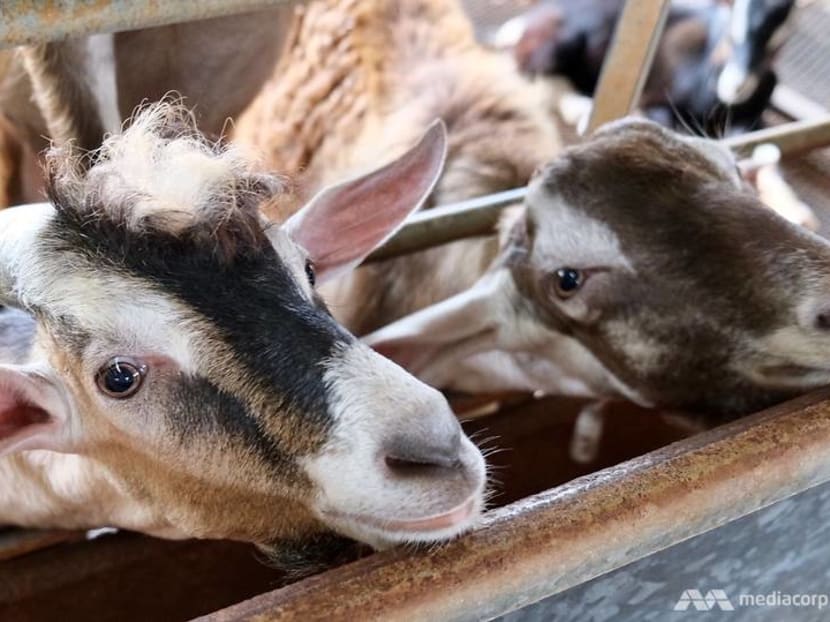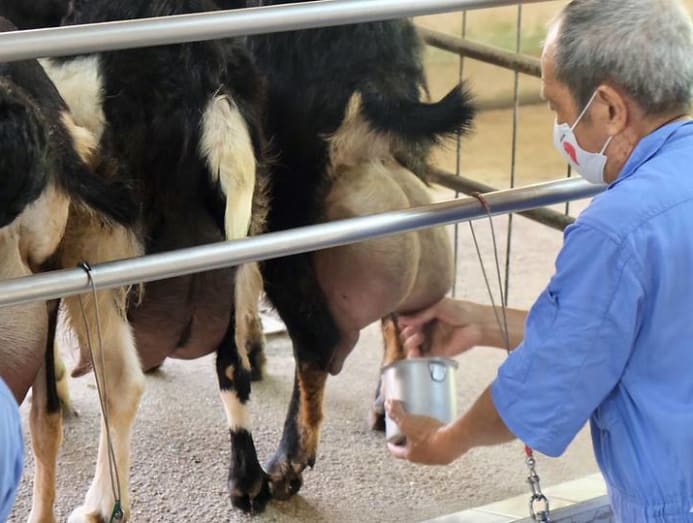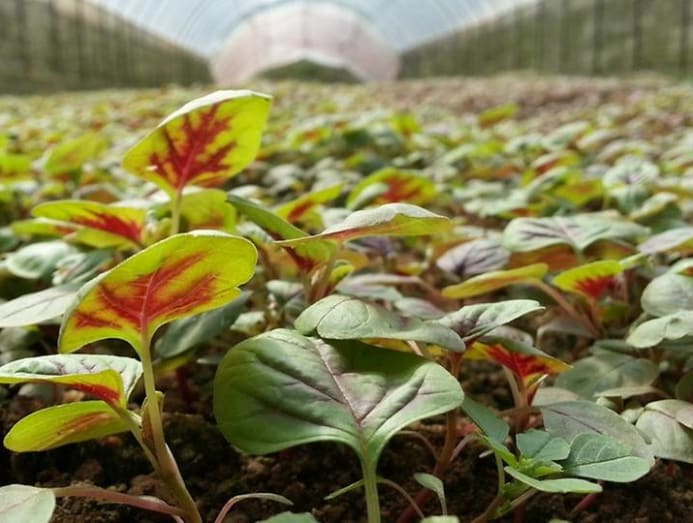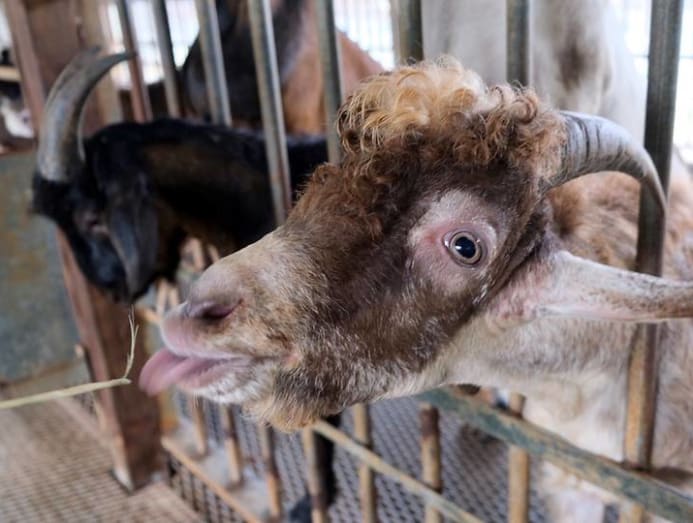More venturing to Lim Chu Kang amid travel restrictions, but farmers say business isn’t what it was

Goats at Hay Dairies, Singapore's sole goat farm. (Photo: Cheryl Lin)
SINGAPORE: Farms in the rural area of Lim Chu Kang are welcoming more visitors as Singapore residents - unable to holiday overseas amid the COVID-19 pandemic - explore the country for new experiences.
“If you compare to a year ago, I think footfall has almost doubled. We get about 400 to 500 people a day now on weekends,” said Ms Chelsea Wan of Jurong Frog Farm.
“It seems to me that locals are exploring offbeat roads and more outdoor activities … Maybe because there’s only so much you can do in a mall."
This has translated to more revenue from selling frog feed and tickets to activities such as frog catching, said Ms Wan.
That has buffered some of the losses incurred when business dropped off during Singapore’s “circuit breaker”, but farm operators CNA spoke to said revenue is still far from what it once was.
READ: With travel restrictions, more flock to Singapore islands for leisure
CAP ON TOURS TRIMMED A BIG REVENUE SOURCE
Safe distancing restrictions on group sizes and activities have clipped demand from one of their largest audience groups – students.
“Previously we did learning journey tours in cohorts of 120 students ... To lose that (revenue pillar) was quite sad,” Ms Wan said.
The farm now runs family tours in groups of five people.
For Ms Wan, the farm attractions supplement their main wholesale frog business, which has yet to recover as demand from restaurants has dwindled amid the pandemic.

It is a similar story at Singapore’s only goat farm.
The number of visitors to Hay Dairies picked up steadily over the past few months to hit about 700 a day during weekends, matching pre-pandemic levels.
However, business from these walk-in customers is not enough to make up for the shortfall from losing tour groups, said the farm’s owner Leon Hay.
“Before COVID-19, from January to November last year, I entertained 17,000 visitors – including about 12,000 students – on booked tours to the farm," Mr Hay told CNA.
"This year in the same period, we only had 55 people booked."

“Because I don’t run group tours anymore, it also affects my milk sales," said Mr Hay, pointing to the fact that the tours are a big marketing tool for the milk which is sold at the farm and at supermarkets.
He added that overall milk sales have fallen by 40 per cent this year.
At a vegetable farm not far away, about 20 per cent more visitors are dropping by, but the owner has found it challenging to take advantage of the opportunities.
“We just don’t have enough manpower to have one guide each for so many small groups,” said the manager of Fire Flies Health Farm Chai Nian Kun.
“So some people come and they don’t know what we are doing (because we don’t have people to explain), they just look around and then leave,” he said.

HOW TO SUSTAIN INTEREST EVEN WHEN TRAVEL RESTARTS
The farms are also trying to ensure that the interest in their businesses is not a flash in the pan, especially as possibilities for travel begin to open up.
Jurong Frog Farm, for instance, is trying to lure repeat visitors with new activities.
“We’re coming up with new workshops on frog parchment. That involves treating frog skin and making them into novel products like keychains,” Ms Wan said.
“This is also part of how we want to educate people about sustainability and the push for zero waste on the farm, using these discards to do something else.”
READ: Lim Chu Kang to be transformed into high-tech agri-food cluster under SFA master plan
Mr Hay said there is still time to “play around with”, given that aviation experts do not expect global air travel to recover to pre-coronavirus levels until 2024.
That means the farm's new facility, which is due to be completed around end-2022, would come at a good time, he said.
Apart from incorporating pandemic-friendly design measures that would help them better control the flow of visitors, Mr Hay said there will be a better viewing gallery and maybe a new interaction area with “teenage” goats.
“We’re also aiming to come up with new product lines – gelato, yogurt and prebiotic drinks – as well as an additional strawberry flavour for the goat’s milk. I can’t do this now because my farm doesn’t have the space,” he explained.

Both the frog and goat farm are also working with travel agencies to promote their farms to Singapore residents as well as tourists when borders reopen.
As for Fire Flies Health Farm, Mr Chai said it is collaborating with non-profit organisation My Community Festival, which is organising tours to various spots in Lim Chu Kang in December.
The farms hope these efforts will be enough to keep drawing visitors to their neck of the woods, in order to raise top-line numbers to what they were before the pandemic.
“For sure, we took those good pre-COVID days for granted. Now we have to work very hard to keep up,” said Ms Wan.
BOOKMARK THIS: Our comprehensive coverage of the coronavirus outbreak and its developments
Download our app or subscribe to our Telegram channel for the latest updates on the coronavirus outbreak: https://cna.asia/telegram





